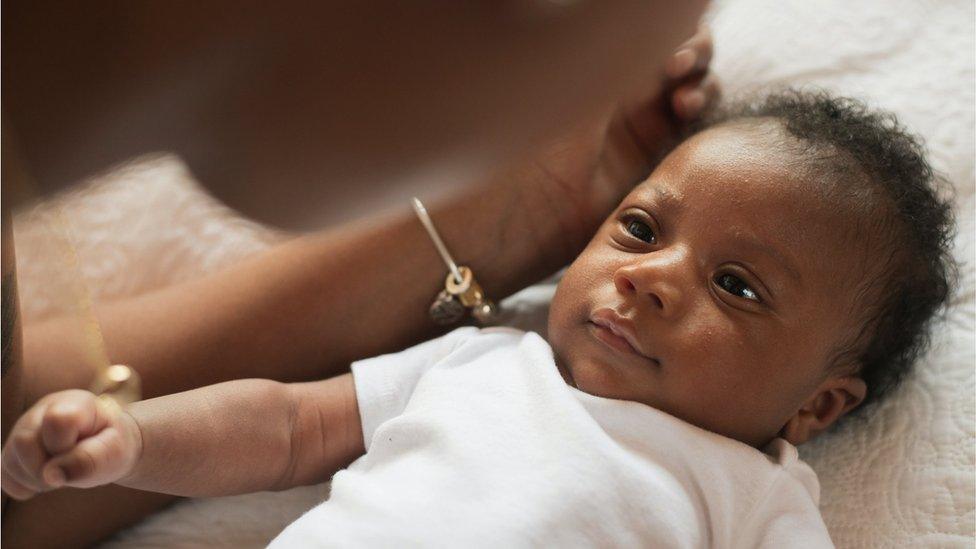Pregnancy: Running and exercise guidance called for by mums
- Published
Zoe Jacobs ran Parkrun when she was nine days overdue
"Often people kind of tell you you're crazy when they see you running with a huge bump."
Experts say there is a lack of advice for women on how to run safely while pregnant, with two-thirds not getting guidance on how and when to exercise.
Some runners have reported facing stigma, even from health professionals.
Now, Cardiff Metropolitan University researchers are carrying out work to understand how pregnant runners' bodies change.
Carys Phillips, from Cardiff, found out she was pregnant the morning she ran the Merthyr half marathon. She did another half marathon the week after.
While she said her midwife was helpful, she experienced unsolicited comments from members of the public.
"A lot of people gave the impression… you might go into labour early or give yourself pelvic floor injuries, especially when you're third trimester," the 34-year-old said.
But for her, "as long as nothing's painful it was fine".
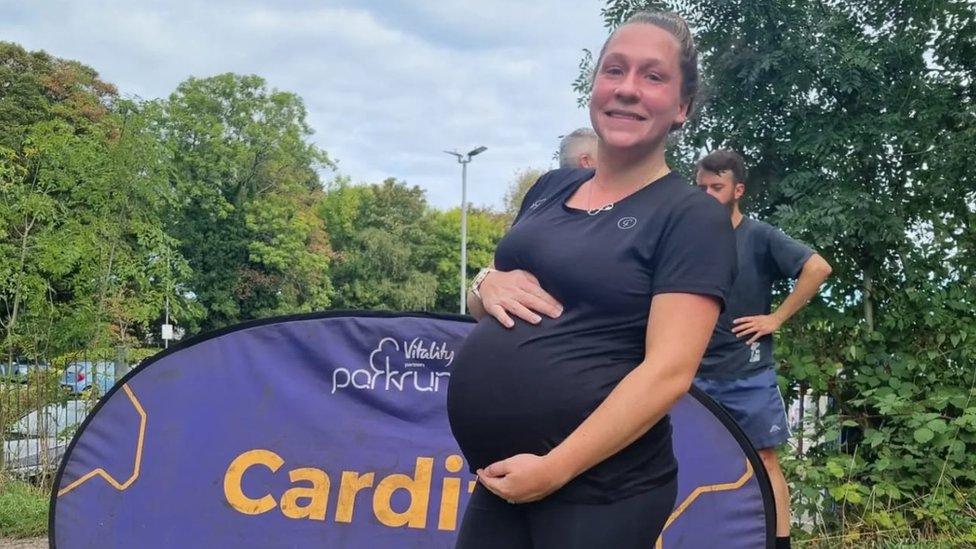
Zoe completed her last Parkrun when she was nine days overdue
Zoe Jacobs, also from Cardiff, did her last Parkrun when she was nine days overdue.
"I was very large and about 10 minutes slower than prior to pregnancy but I did it and it felt good as well," the 26-year-old said.
"Often people kind of tell you you're crazy when they see you running with a huge bump or to be careful to make sure you don't fall over… obviously you were doing that anyway."
Both women returned to running a few weeks after giving birth but for Zoe it was more complicated after having a caesarean section, external.
She did not let this stop her and five months after giving birth she completed the London Marathon.
Both have called for clear guidelines about exercising after having children, with Carys fearing that she was "potentially going to cause long-term harm".
Her advice was simple: "If you feel discomfort, stop, reassess and slow down."
Research shows 65% of women do not get advice about how to exercise during and after pregnancy.
Running during and after pregnancy is considered safe for mother and baby, and can help control weight gain and maintain fitness and strength.
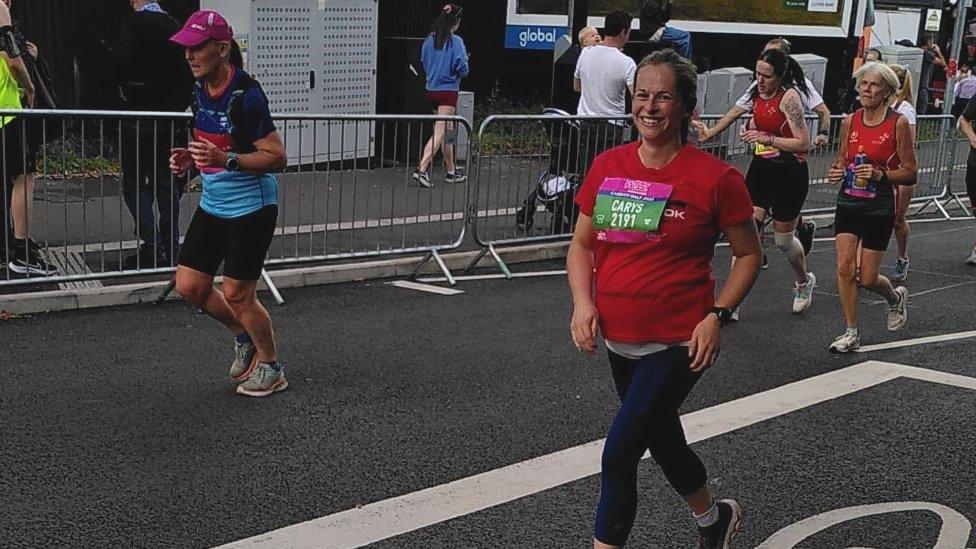
Avid marathon runner Carys Phillips is calling for clear advice about exercise after giving birth
Cardiff Metropolitan University's project will help develop better clinical guidelines to get more women back to sport.
Dr Izzy Moore, lecturer in sport and exercise medicine, said continuing to run while pregnant for as long as possible brings many health benefits for mother and child.
Former world champion Paula Radcliffe famously won the 2007 New York marathon 10 months after giving birth, while Welsh cyclist Elinor Baker woman a silver medal at the Olympics while pregnant in 2021.
"Unfortunately, we don't know an awful lot about women running during pregnancy or returning to sport and exercise post-partum," Dr Moore said.
The barriers women face include time, fear and anxiety, she added.
Most women can return to running between six and 12 weeks after giving birth, when tissues are more or less healed, but a gradual increase is recommended.
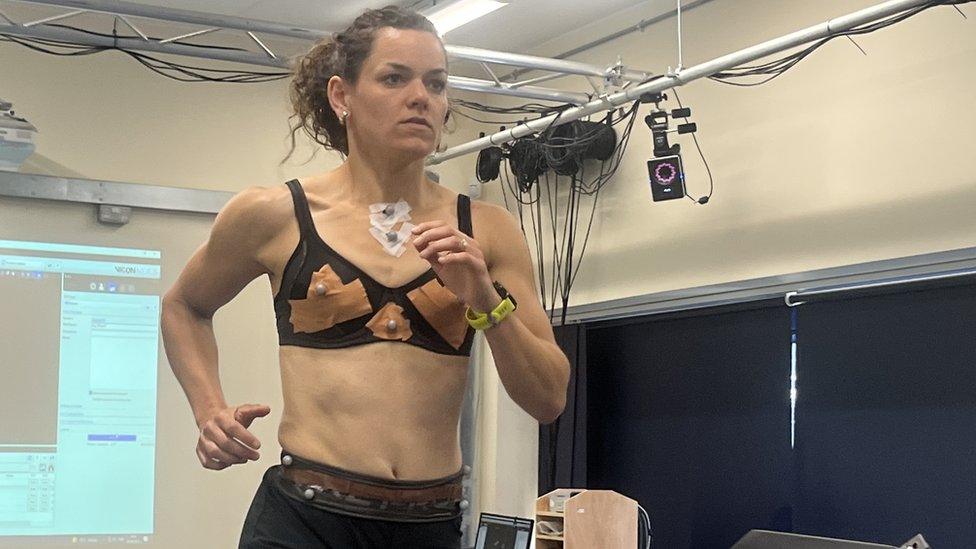
Mother-of-two Gemma Rouse is taking part in the university's research program
Dr Moore said women should seek help from a medical professional if they experience leaking or vaginal heaviness.
Gemma Rouse is one of 30 participants included in the university's research to understand how to adapt training and deal with common injuries.
The 37-year-old has been running on a treadmill while every movement of her body is mapped.
The mother-of-two exercised throughout both her pregnancies, but said she experienced "so much" conflicting advice about running, adding that some comments "felt quite judgemental".
She said she also got "some very strange looks and comments from the healthcare professionals" when she cycled to her maternity appointments.
She added: "Exercise has always been a big part of my life and I needed to do that to feel like me."
- Published12 May 2023
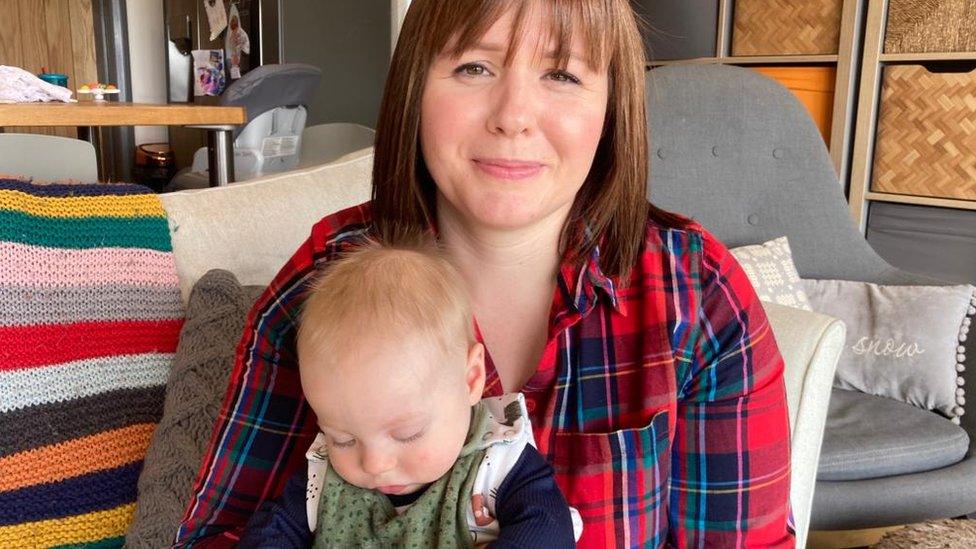
- Published8 July 2023
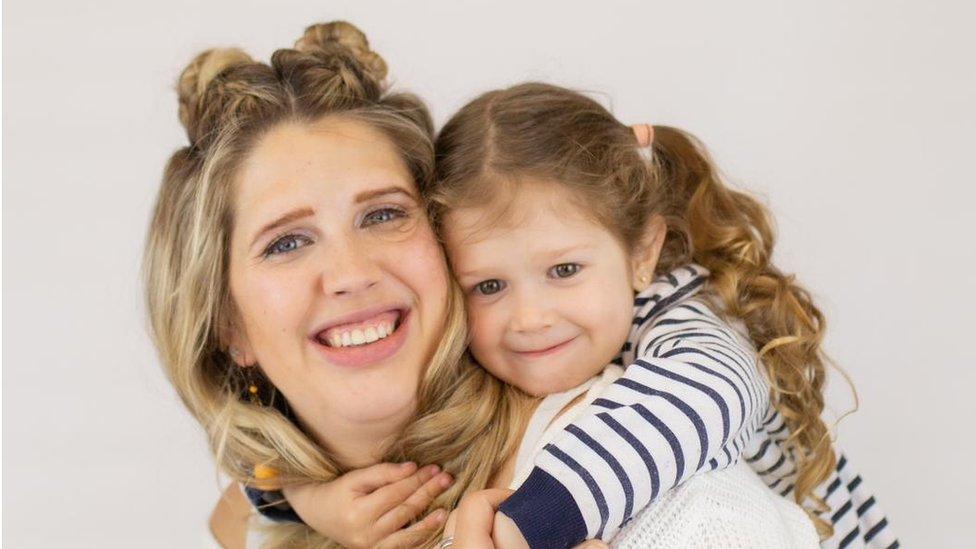
- Published12 July 2023
